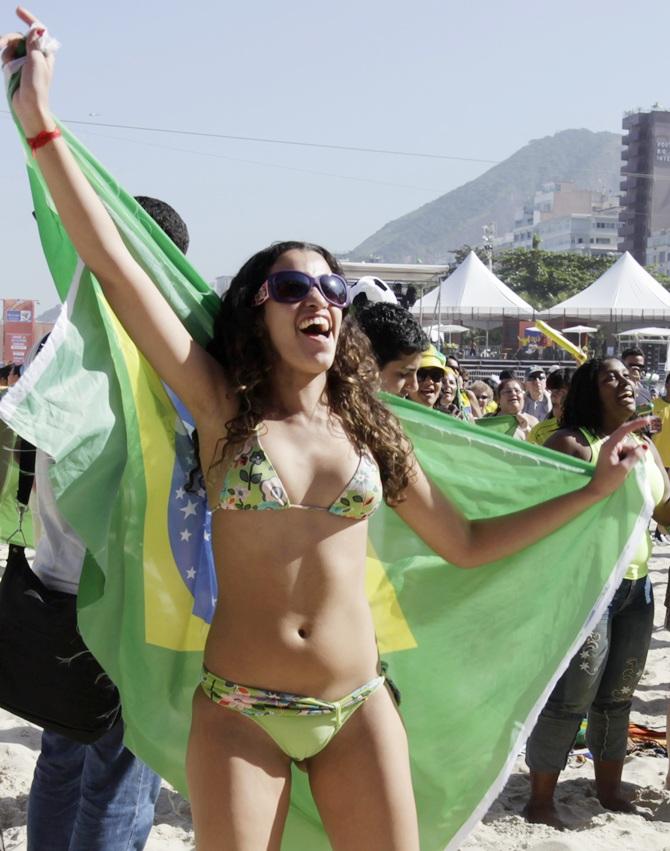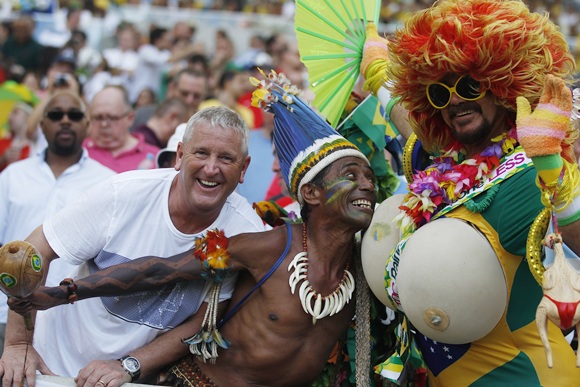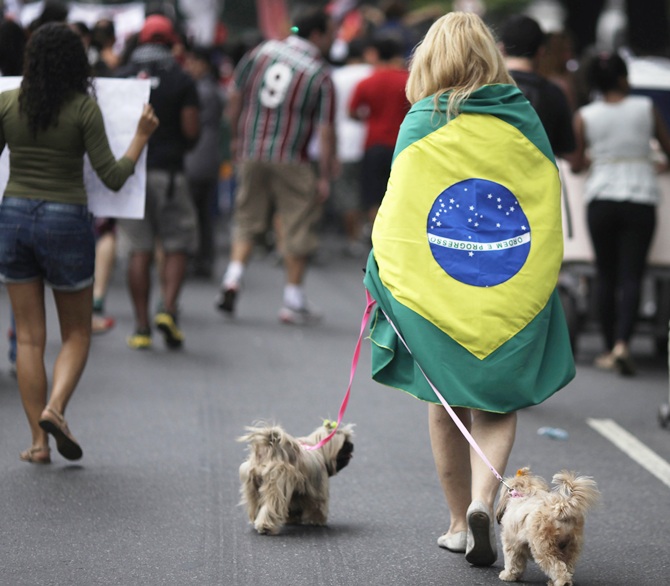 | « Back to article | Print this article |
Are Brazilians souring on hosting FIFA World Cup 2014?
The number of Brazilians who favour hosting the World Cup has fallen to an all-time low just four months before kick-off, with many criticizing the soccer tournament as a waste of money that would be better spent elsewhere, a poll showed on Monday.
The survey by local pollster Datafolha showed that only 52 percent of Brazilians favored hosting the World Cup, down from a high of 79 per cent in November 2008, a year after Brazil was chosen as the venue for the 32-nation event.
Support for the event has waned since massive protests broke out in June against poor public services and the high cost of building stadiums for the World Cup.
Are Brazilians souring on hosting FIFA World Cup 2014?
But the Datafolha poll also showed the demonstrations, which have become smaller and more violent as masked anarchist groups clash with police, were losing popular support.
The survey showed that 38 per cent of Brazilians were against hosting the Cup, up from 10 per cent in 2008. The result was surprising for a nation that is passionate about the game and has won five World Cup titles, more than any other country.
The survey corroborated the findings of another poll last week that showed most Brazilians would not want the World Cup to be held in their country if the decision was made today.
That poll, conducted by Brazil's MDA, found that 80.2 per cent of Brazilians thought the billions of dollars spent to host the World Cup should have been directed elsewhere, such as for healthcare and education.
Are Brazilians souring on hosting FIFA World Cup 2014?
The Datafolha poll showed backing for the protests had dropped to 52 per cent from a peak of 81 percent last June, when more than 1 million people took to the streets to vent their anger over deficient public transport, education and health services.
The number of Brazilians who are against the protests rose to 42 per cent in February from 15 per cent in June.
The survey of 2,614 people was conducted between February 19 and 20, one week after a television cameraman was killed by a homemade firework during a protest against a hike in bus fares in Rio de Janeiro. The death of Santiago Andrade shocked Brazil and highlighted how violent the demonstrations had become.
Are Brazilians souring on hosting FIFA World Cup 2014?
On Saturday, about 1,000 young anti-World Cup demonstrators clashed with police after bank branches and storefronts were vandalized in Sao Paulo, Brazil's largest city. Sao Paulo will host the Cup's prestigious opening match on June 12.
Sao Paulo police detained 230 protesters, almost one in every four that turned out, as part of a policy of registering as many violent demonstrators as possible to deter them from returning to the streets and facing more serious charges.
An anarchist group known as the Black Blocs is threatening to disrupt the World Cup, which is expected to draw about 600,000 soccer fans from other countries.
Are Brazilians souring on hosting FIFA World Cup 2014?
Any disruption of the tournament, which was meant to mark Brazil's coming of age on the global stage, would further embarrass President Dilma Rousseff's government, which is already facing criticism because of repeated delays in World Cup preparations.
Brazil's government and Congress are drawing up legislation that would help police control violent demonstrations by banning masks and making it easier to identify protesters.

© Copyright 2024 Reuters Limited. All rights reserved. Republication or redistribution of Reuters content, including by framing or similar means, is expressly prohibited without the prior written consent of Reuters. Reuters shall not be liable for any errors or delays in the content, or for any actions taken in reliance thereon.




